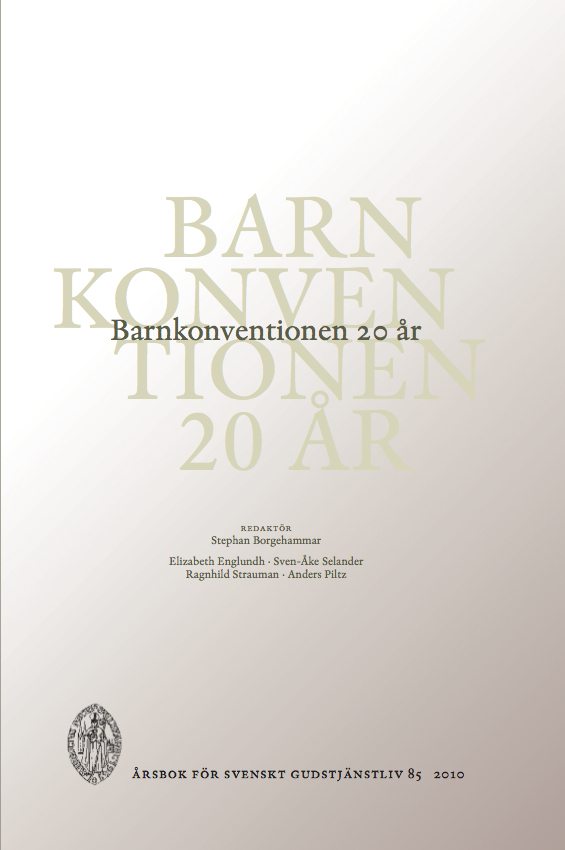Barn og kirkemusikk - barnekorarbeid sett i lys av trosopplæringsreformen i Den norske kirke
Abstract
Children and Church Music - Working with Children's Choirs in the Light of the Faith Education Reform of the Church of Norway
In 2003, the Norwegian parliament (Stortinget) launched the so-called Faith Education Reform. With the reform the state supports religious communities and mainly the Church of Norway in establishing their own faith nurture programs. This is first of all due to the loss of baptismal education as a school subject, a change that actually started as early as in 1969. The reform process also had its background in societal changes, with immigration and pluralism, and the general political opinion discovering religion as an important and obvious part of the common society. The reform challenged the Church of Norway to develop a faith education for children and youth aged 0–18 with a grass-root trial period of five years. The reform should be based on local experience, a demand that has contributed to a high motivation for the reform amongst local staff and parishioners. The reform has resulted in an increasing consciousness about baptismal theology in the Church of Norway, and the Sunday Services have become renewed as an area of faith education. The reform is fully financed by the Norwegian State.
Singing groups for moms and toddlers, church-school for six-year- olds, a night in church for eleven-year-olds, baptismal school as a leisure activity, camps and clubs with different programs are some of the arrangements that have been developed and tried out in the reform. The aim of this article is to explain why also children’s choirs are an important part of faith education. The cognitive aspects connected to lyrics, hymns and narrative texts from the Bible are supported by aesthetics, cooperation, socialization, common experiences and creative actions. Through the art of music and singing, children may see God.
The Cathedral in Bodø (Bodø domkirke), Norway, was one of the parishes involved in the trial period. The main task was to focus on work with children’s choirs, but also to establish meeting points between continuous choir rehearsals and time-limited activities, such as church musical performances and special Sunday services. During this period, four new church musicals for children were ordered, involving choirs, composers, writers, dancers, musicians and directors. A lot of »external» children came to experience the performances. To involve and include children in the Sunday services became another important issue for the project in Bodø Cathedral. The staff realized the importance of planning the services months beforehand, in order to have enough time to prepare the children of all the tasks they can take care of. They also experienced that information and conversation about Holy Communion encouraged the children to get involved in this part of the service. Furthermore, the choir rehearsals were considered a useful area of faith education, with their weekly input of Christian knowledge and experience of art through singing.
However, the continuous work with children’s choirs has not actually played a major part in the trial period of the Faith Education Reform in the Church of Norway as such. Among the 282 employed faith educators in 2007, only 20 persons were qualified as church musicians. In practice, the Faith Education Reform has been a renaissance for religious education without including the church musician as a serious part of this. The leadership of the Church of Norway has no real confidence in the church musician as faith educator. Nevertheless, children’s choirs can easily be confirmed as an important area of faith education, where mastery of one’s own life, the tradition of church and faith and the practice of Christian belief find their place.
Keywords: Faith Education Reform, Church of Norway, children’s choirs.
Downloads
Published
Issue
Section
License
© the authors, Laurentius Petri Sällskapet för Svenskt Gudstjänstliv and Artos & Norma Bokförlag. Copying and using material from Svenskt Gudstjänstliv for scholarly purposes is permitted as long as the source is indicated. For other uses, please contact the respective author as well as the publisher. Special restrictions may apply to images.


